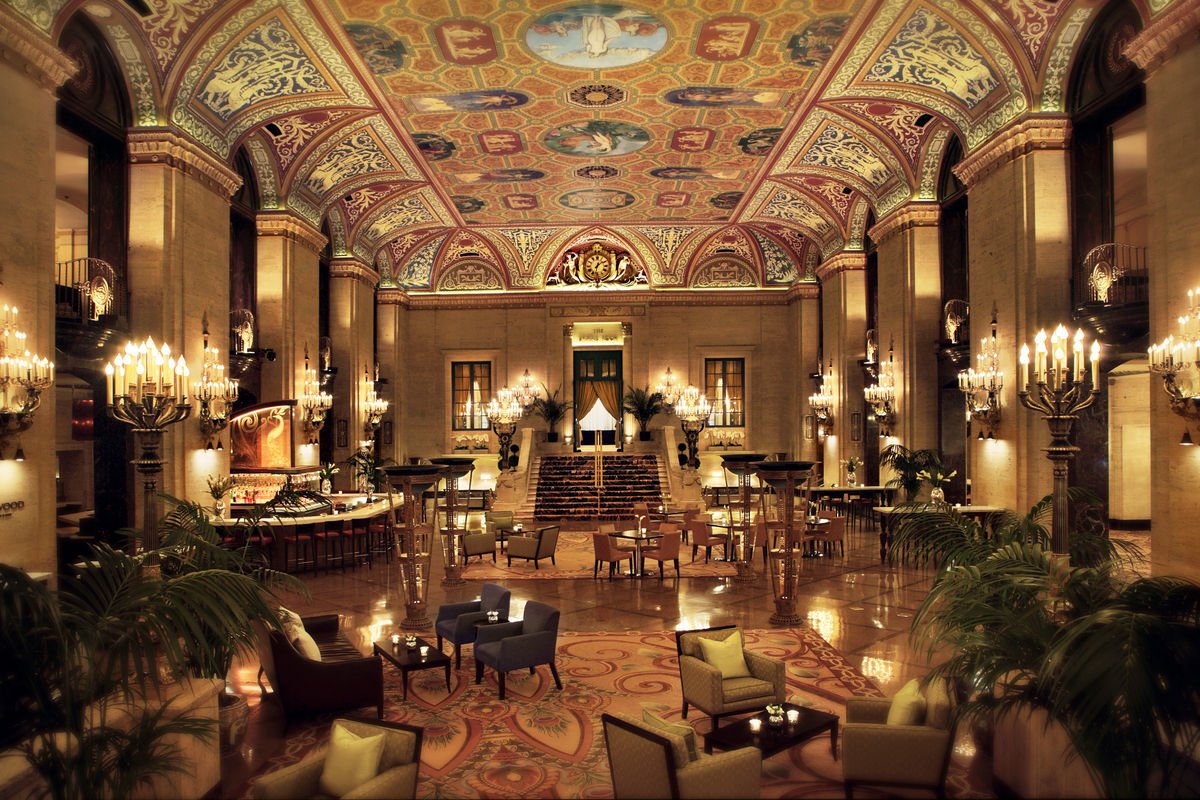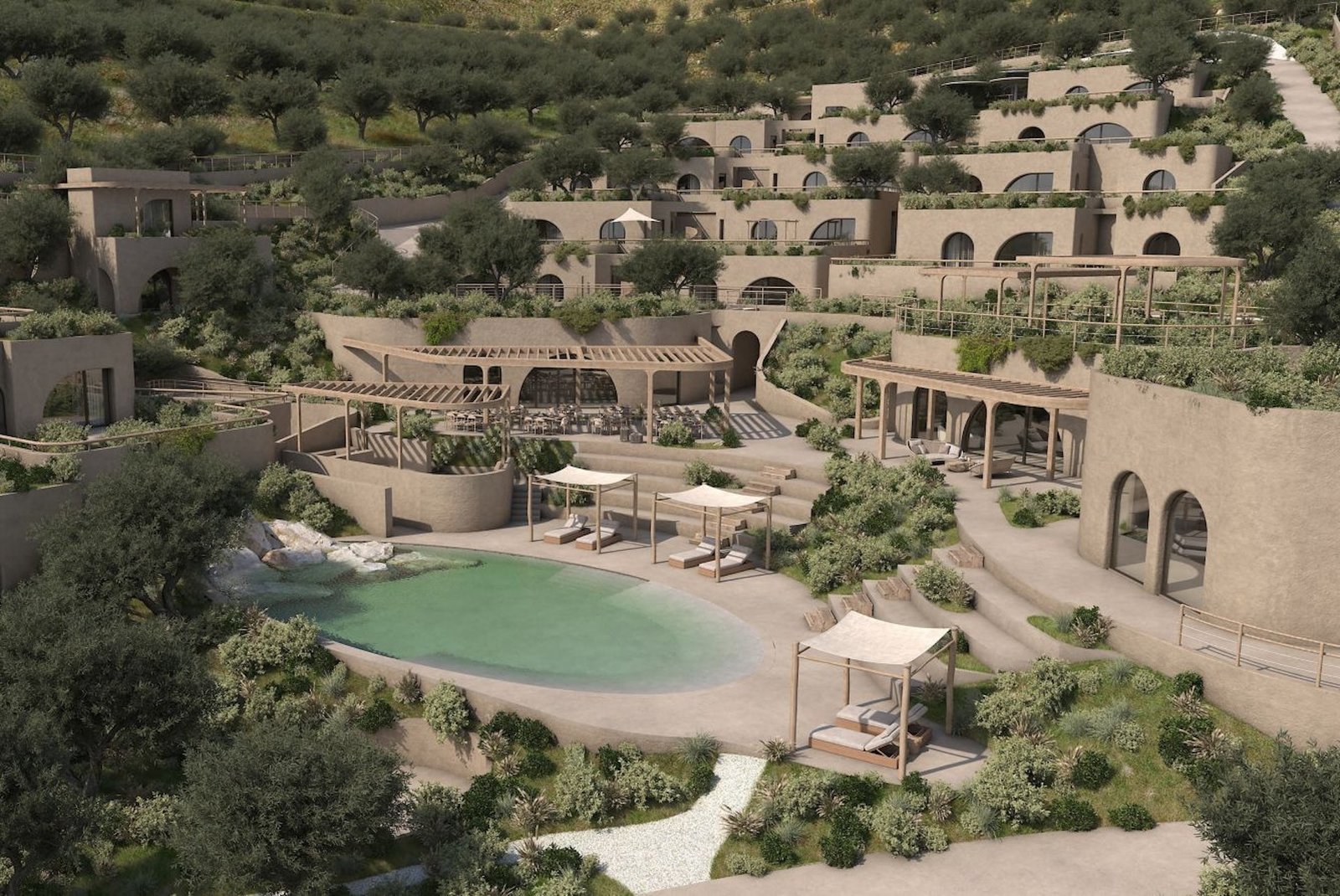Hotels & Accommodations
Targeted by the right, Britain’s asylum hotels are places of fear and disorder. Bad political decisions made it so | Daniel Trilling

A broad section of Britain’s right has spent the summer behaving as if it would like a repeat of last year’s racist riots. As politicians and commentators cry “tinderbox Britain” – are they warning us, or willing it on? – far-right extremists have been actively trying to stoke violence. This year, they have pinned their hopes on asylum hotels, an issue where public fears over crime, immigration and the welfare state conveniently converge.
In some places, far-right activists have piggybacked on protests prompted by local grievances. The most significant this year was in Epping, Essex, after an alleged sexual assault by an asylum seeker led to demonstrations that turned violent when they were joined by members of various far-right groups. A similar pattern has unfolded in London’s Canary Wharf, after untrue rumours that some of the Epping hotel residents were being moved there. In other cases, far-right activists have themselves organised the protests. A call has gone out among their online networks for gatherings this weekend in several parts of England.
It is unlikely – though not impossible – that the end result will be on the scale of the riots we saw last summer, since that was triggered by a shocking act of murder followed by widespread misinformation and conspiracy theories about the identity of the killer. But anti-fascist campaigners I’ve spoken to believe it may cause lower-level disturbances like those seen in Epping and in Knowsley, Merseyside, in 2023, and it will certainly help ensure that asylum hotels remain a contentious topic for many months to come.
One question, however, often goes unanswered: why are asylum seekers being accommodated in hotels in the first place? Before 2020, the phenomenon hardly existed, yet by its peak in 2023 there were more than 55,000 people in hotels, waiting many months to have their asylum claims processed. (Today the number has dropped to about 30,000.)
For some, the answer will be: “because there are too many people seeking asylum in the UK and we don’t have the resources to support them”. This is misleading. Although Britain has seen higher numbers of asylum applications in recent years, according to Oxford University’s Migration Observatory they are not exceptional when compared with those of other European countries. Yet the UK relies on costly hotel accommodation far more heavily than any of its neighbours.
A series of actions by both Labour and Conservative governments since the turn of the century has brought us to this point. The first was the decision by Tony Blair’s government to make people seeking asylum heavily reliant on state support. Until mid-2002, asylum seekers could take up jobs if they had to wait more than six months for an initial decision on their asylum claim. Much of the press disliked this, saying it allowed asylum seekers to take other people’s jobs. So the government in effect banned them from working. (In many other European countries, people seeking asylum are still allowed to work after a waiting period.)
If a government bans people from working then it needs to provide them with essential support, unless it is happy for them to starve to death on the streets. At first, accommodation was largely provided by local councils’ housing departments. But politicians took a second decision, which was to privatise the accommodation. This began in the late 2000s, but the really important step was taken by David Cameron and Nick Clegg’s coalition government.
In 2012, as part of the coalition’s wider austerity drive, asylum accommodation was outsourced to the same profit-driven contractors that now run many of our public services. The contractors often failed to provide decent housing or value for money and the government had to rewrite the contracts. Even then, problems persisted: by the end of the decade, it was becoming increasingly common to house asylum seekers in “contingency accommodation” such as short-term lets and hotels.
The third decision, taken by the governments of Boris Johnson, Liz Truss and Rishi Sunak, was to sabotage the asylum system itself. During the first Covid lockdown in 2020, people seeking asylum were placed in hotels – which, at the time, were largely empty anyway – for public health reasons. This coincided with a rise in the number of people crossing the Channel by small boat, as opposed to stowing away in lorries as they had largely done previously. (Many people who choose such routes do so because they do not have the option of a safe resettlement scheme, such as the one the UK has offered to Ukrainian refugees.)
The Conservative government encouraged hostility towards small boat journeys, describing them as an “invasion”. Instead of moving asylum seekers out of hotels and into more suitable accommodation when the pandemic subsided, it kept them there while it built prison-like encampments as an alternative. (These schemes mostly never got off the ground.) At the same time, it allowed a backlog of asylum applications to grow – and then tried to ban many asylum seekers from claiming asylum at all, saying it would instead deport them permanently to Rwanda. (That scheme never got off the ground either.)
All the above has led to more asylum seekers living in more hotels for longer, in more parts of the country. At its root, it is a story of public penny-pinching and market forces causing a problem that is then made worse by politicians promising a quick fix or finding a convenient scapegoat. If that sounds familiar then perhaps it’s because it’s a story we also find in our hospitals, schools and wider communities.
This could be an occasion to ask what has gone wrong with the state more generally, and to talk about what could be done to make it work better for everyone. Keir Starmer’s government has promised to end the use of hotels by 2029, by investing in the asylum system and reducing small boat journeys. But if it is unwilling to have that wider conversation, then the right is ready with its own seductive, destructive answers.
Hotels & Accommodations
Extravagant Hotel Lobby Bars in the US

Luxury
hotels draw travelers looking for high-end pampering or a unique escape
that includes not only posh accommodations, stunning pool or elegant grounds,
but an impressive lobby and lobby bar as well.
Lobby bars not only provide respite after a busy day of
travel or local exploration, but they are places to chill, relax or socialize
with a cocktail in hand. A hotel bar may be just a place to get a drink at some
destinations, but others offer a myriad of amazing historic, cultural,
artistic and creative experiences that accompany that libation. Here are some
top extravagant hotel lobby bar choices.
Hotel Monteleone New Orleans Carousel Bar (Photo via Noreen Kompanik)
The Carousel Bar & Lounge, Hotel Monteleone, New Orleans
New Orleans’ Hotel Monteleone is renowned for its famous
rotating Carousel Bar. Installed in the 1940s, it features a large, circular
counter that slowly revolves, giving patrons a constant changing view of the
surroundings. The bar turns on 2,000 large steel rollers pulled by a chain and
powered from a one-quarter horsepower motor at a constant rate of one
revolution every 15 minutes.
The bar features 25 seats adorned with luxurious, vibrant
upholstery, giving it an elegant, throwback feel. Patrons can enjoy a wide
selection of cocktails, including classic New Orleans drinks like the Sazerac
and the Vieux Carré (old square).
Waldorf Astoria New York Peacock Alley (Photo Credit: Waldorf Astoria New York)
Peacock Alley, Waldorf Astoria New York
Following a meticulous restoration, Peacock Alley remains
the heart of the luxury hotel where guests will find the historic Waldorf
Astoria Clock and Cole Porter Piano. Restored to its former glory and
positioned in the center of Peacock Alley, the Waldorf Astoria Clock was
crafted in London for the 1893 World’s Fair.
Cole Porter was a longtime resident of the hotel and his
Steinway piano, gifted to him by hotel staff, has been carefully restored and
relocated to its permanent home in Peacock Alley. Signature drinks include the Waldorf Cocktail
and 50th St Martini.
SkyHigh Lounge at Four Seasons Philadelphia (Photo Credit: Visit Philly- Four Season Philadelphia)
SkyHigh Lounge at Four Seasons Philadelphia
Located atop of Philadelphia’s tallest and newest
skyscraper, the Four Seasons Hotel’s accommodations span the 48th to
60th floors of the Comcast Technology Center in the heart of
bustling downtown Center City.
The Jean-Georges Vongerichten’s signature restaurant
Jean-George and the lounge sit on the 59th and 60th
floors, offering guests sweeping, breathtaking, unobstructed 360-degree views
of the city from every angle.
Palmer House, a Hilton Hotel, Chicago
The Lobby Bar at Lockwood is the perfect place to sip
curated cocktails and enjoy shared plates. Guests raising a glass at Palmer
House can toast under a canvas of 21 Greek mythological frescos lit by the warm
glow of Louis Comfort Tiffany Winged Angel candelabras. The awe-inspiring
living, breathing piece of history was fully restored to its original beauty
with careful attention to the intricate details, down to the most important
matters, a perfectly prepared cocktail.
Arizona Biltmore Wright Bar (Photo Credit: Arizona Biltmore)
The Wright Bar, Arizona Biltmore
Opened in 1929, the Arizona Biltmore has seen an impressive
list of historical figures and celebrities staying in its confines, ranging
from presidents to musicians.
Centrally located in the lobby, the elegant Wright Bar is
the home of the famous Tequila Sunrise. Concocted in the 1930s by bartender
Gene Sulit, the drink has remained a favorite cocktail of many, along with
entertainers who performed like Frank Sinatra and an impromptu performance by
none other than The Piano Man, Billy Joel in the bar.
Palma at Santa Monica Proper
Relaxed elegance meets thoughtful nourishment at this
stunning bar located on the ground floor of the Southern California venue.
Guests are greeted with an impressive art-filled lobby, then head to the
welcoming sculptural bar for small plates, cold-pressed juices, small-batch
spirits and crafted cocktails.
The beauty of the bar lies in the palm trees that surround a
magnificently crafted monolithic bar along with carved out niches for comfort
and relaxation. There’s nothing like taking in those California-cool vibes with
a SoCal cocktail in hand.
Trifecta Lobby Bar serves up some of the coolest cocktails around. (Photo Courtesy of Four Seasons Hotels and Resorts)
Trifecta at Four Seasons, Boston
Inspired by the New England coast, this vibrant restaurant
and Back Bay cocktail bar are a delightful nod to Boston’s vibrant culture and
character. A curated collection of cocktails pay homage to the city’s most
celebrated neighborhoods and legendary baseball park.
Some of these creative concoctions include The Green
Monster, Boston (Un) Common, Joy Street, Ciao Bella! and New Berry Street.
Tools of the Trade is a classic twist on a Manhattan with of course…that famous
accompanying smoke.
The Lobby Bar, The Lincoln, Maine (Photo Credit: The Lincoln, Maine)
The Lobby Bar, The Lincoln, Maine
This design-centric hotel located in downtown Biddeford is
set in a luxuriously reimagined mill that was once the beating heart of Maine’s
booming textile industry. The star of the show is the unique lobby that greets
each patron with an amazing bar.
The Lobby Bar features a grand ‘40s and ‘50s nightclub vibe
with opulent cocktails such as the Lincoln’s twist of a French 75, a classic
libation enhanced with Peach Combier, and other curated beverages.
The lobby’s eccentric design draws the eye in every
direction, mixing colors, patterns, materials, and original artwork from a
talented local artist. Throughout their stay, guests can enjoy plush velvet
seating flanked by exposed brick walls, a hint at the hotel’s historic roots.
The Bar, Auberge du Soleil, Napa
Imagine enjoying a glass of Napa wine or a cocktail while
taking in the sweeping vineyards and olive trees from a sun-drenched terrace.
Somehow that libation tastes all the better in these unforgettable picturesque
surroundings.
The views are stunning and so easy to just relax and
rejuvenate at this luxurious yet laid-back wine country favorite serving drinks
and small plates.
The lobby area inside The St. Regis Bal Harbour Resort. (Photo Credit: The St. Regis Bal Harbour Resort)
The St. Regis Bar Bal Harbour Miami
Rising 27 stories over fashionable Collins Avenue and a
stunning white sand beach, this luxury hotel in Miami Beach represents a
wonderful combination of art, fashion and design.
The St. Regis bar invites guests to unwind and relax
offering an exclusive collection of the world’s finest champagnes, select
vintages and hand-crafted cocktails in a tropical, timeless and modern setting.
For the latest travel news, updates and deals, subscribe to the daily TravelPulse newsletter.
Topics From This Article to Explore
Hotels & Accommodations
The Hotel News You May Have Missed — 1st Week of August 2025 – Upgraded Points
Hotels & Accommodations
Haritha hotels in for revamp to increase profits & footfall | Hyderabad News

Hyderabad: In an effort to improve footfall and increase profits, the Telangana Tourism Development Corporation (TGTDC) is set to renovate tourism hotels in the state. The state has 25 Haritha hotels, as the tourism hotels are called, which haven’t been refurbished in over 10 years. Almost 20 of them face issues such as broken doors, leaky roofs, and old and dingy furniture.“We recently conducted a survey of the hotels and realised that there is scope for improvement in some of them. Our customers deserve only the best experience, and presently, in terms of stay, we can do a lot better,” Valluru Kranthi, managing director of TGTDC, said.Some of the hotels, especially the ones in Hyderabad such as the Hotel Tourist Plaza, and the Haritha Hotel in Warangal, were recently renovated last year on account of the Miss World event held in May this year.Despite the sorry state of some of the hotels, the business continues to be profitable, according to officials. They also say that the hotels get 50% occupancy on weekdays and some are fully occupied on weekends during tourist season.“Last year, we made a profit of 11 crore through these hotels. But our target, after the upgrade work, is to reach the 25-crore mark, and also encourage tourists to use these hotels even more,” Kranthi added.In addition to upgrading the hotels, officials said they plan to establish at least four more hotels in the coming years. The initiative is part of the recently announced Telangana Tourism Policy (2025-30), which aims at propelling the state as one of the most sought-after destinations of tourism in the country.
-

 Brand Stories3 weeks ago
Brand Stories3 weeks agoBloom Hotels: A Modern Vision of Hospitality Redefining Travel
-

 Brand Stories2 weeks ago
Brand Stories2 weeks agoCheQin.ai sets a new standard for hotel booking with its AI capabilities: empowering travellers to bargain, choose the best, and book with clarity.
-

 Destinations & Things To Do3 weeks ago
Destinations & Things To Do3 weeks agoUntouched Destinations: Stunning Hidden Gems You Must Visit
-

 Destinations & Things To Do2 weeks ago
Destinations & Things To Do2 weeks agoThis Hidden Beach in India Glows at Night-But Only in One Secret Season
-

 AI in Travel3 weeks ago
AI in Travel3 weeks agoAI Travel Revolution: Must-Have Guide to the Best Experience
-

 Brand Stories1 month ago
Brand Stories1 month agoVoice AI Startup ElevenLabs Plans to Add Hubs Around the World
-

 Brand Stories4 weeks ago
Brand Stories4 weeks agoHow Elon Musk’s rogue Grok chatbot became a cautionary AI tale
-

 Brand Stories2 weeks ago
Brand Stories2 weeks agoContactless Hospitality: Why Remote Management Technology Is Key to Seamless Guest Experiences
-

 Asia Travel Pulse1 month ago
Asia Travel Pulse1 month agoLooking For Adventure In Asia? Here Are 7 Epic Destinations You Need To Experience At Least Once – Zee News
-

 AI in Travel1 month ago
AI in Travel1 month ago‘Will AI take my job?’ A trip to a Beijing fortune-telling bar to see what lies ahead | China


You must be logged in to post a comment Login